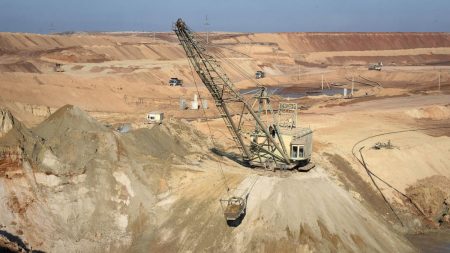The recently concluded trade agreement between the European Union and the Mercosur bloc (Argentina, Brazil, Paraguay, and Uruguay), while hailed as a landmark achievement by the European Commission, faces significant hurdles before its full implementation. The agreement, aiming to establish a free trade area encompassing 780 million people, has reignited concerns from European farmers and environmentalists, echoing similar protests that stalled a previous iteration of the deal in 2019. While the Commission emphasizes new provisions addressing these concerns, the path to ratification remains uncertain and fraught with political maneuvering.
The core of the opposition stems from the perceived threat to European agricultural interests. Farmers fear unfair competition from Mercosur producers operating under potentially less stringent environmental and production standards. They demand reciprocity in these standards to ensure a level playing field. While the Commission highlights the inclusion of legally binding environmental commitments, including adherence to the Paris Agreement and a commitment to halt illegal deforestation by 2030, farmers remain skeptical. The offered €1 billion reserve fund, intended to mitigate potential negative impacts on the European agricultural sector, is seen as insufficient insurance against the predicted influx of cheaper agricultural products from Mercosur countries.
The Commission emphasizes the significant advancements achieved in the new agreement, particularly regarding environmental protection. The inclusion of the Paris Agreement as an essential element, a first for such a trade deal, is touted as a major win. This provision allows for partial or total suspension of the agreement if either party fails to uphold environmental standards. Furthermore, the legally binding commitment by Mercosur countries to halt illegal deforestation by 2030, coupled with the requirement that only deforestation-free products enter the EU market by 2025, is presented as a groundbreaking achievement in linking trade and environmental sustainability.
However, critics argue that these provisions lack teeth and may be difficult to enforce. The complexities of monitoring deforestation and ensuring compliance, especially in countries like Brazil with vast and often inaccessible territories, raise serious questions about the effectiveness of these measures. Furthermore, the long timeframe for implementing these commitments raises concerns about the potential for continued environmental damage in the interim. The inclusion of these environmental safeguards, while welcomed, hasn’t fully assuaged the anxieties of environmental groups who continue to harbor reservations about the deal’s overall impact.
Beyond agriculture and environmental concerns, the agreement also addresses other key sectors, including the automotive industry. European car manufacturers, seeking new markets in the face of growing Chinese competition, have secured tariff reductions on exports to Mercosur countries. In return, Mercosur countries have negotiated a longer phase-out period for tariffs on electric and hybrid vehicles, protecting their own nascent automotive industries. This delicate balancing act reflects the intricate interplay of economic interests and political considerations that underpin the entire agreement.
The road to ratification is a long and complex one, requiring approval from both the European Council and the European Parliament. The Commission’s political agreement with Mercosur represents merely the first step in a process likely to be marked by intense lobbying and political maneuvering. France, a vocal opponent of the agreement, is actively seeking to form a blocking minority within the Council, leveraging its influence to potentially derail the deal. The positions of other key member states, including Italy, Poland, Ireland, the Netherlands, and Austria, will be crucial in determining the agreement’s fate. The European Parliament, too, will play a pivotal role, with its approval essential for the agreement’s conclusion. The diverse political landscape within the Parliament adds another layer of complexity to the ratification process, making the outcome far from certain. The interplay of national interests, economic considerations, and environmental concerns will shape the debate in the coming months, ultimately deciding the future of this landmark trade agreement.










